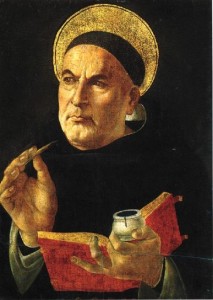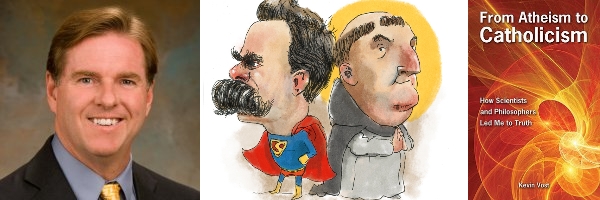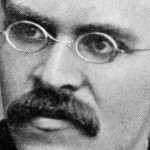From Atheism to Catholicism: A Tale of Three Supermen
by Dr. Kevin Vost
Filed under Atheism, Conversion
Neither bird, nor plane...but Superman!
I was born and raised Catholic, but also Supermanian. Some of my earliest memories involve sitting in front of the television, mesmerized by that incredible, flying man of steel. He was invincible, doing good and daring deeds effortlessly and with a smile. Men respected him, women adored him, and he didn’t even want people to know who he really was. I too would come to don a Superman suit, cape and all, to such an extent that my mother’s friends called her “Superman’s mom.” One fine Saturday in the mid 1960s, mom informed me that Kevin, and not Superman, would be attending a relative’s wedding, so I attended in my street clothes. Fortunately, I was able to persuade an older cousin to take me out to the car. Soon a young Superman (the car would be my makeshift phone booth) sat down in the pew right between his mortified mother and quite bemused father.
So the Man of Steel played a role in my early childhood dreams and play, as he and similar figures do for many children. I would also find though that the Superman theme would keep recurring as I matured, and not just because my wife and friends are constantly giving me Superman cards, ornaments, key chains, pens, shirts, pajamas and just about every Superman thing on the market. Superman embodied for me a striving to make the most of oneself and to do good, as captured in his motto, “Truth, Justice, and the American Way!” His ideal image led me to a lifelong pursuit of physical strength through weightlifting and to the pursuit of truth through philosophy.
On to more serious business though, I did mention that I was also raised Catholic. My mother had five miscarriages before I was born, which is why my middle name is Gerard, in honor of St. Gerard of Majella, patron of childbirth. What I also learned just this year in researching St. Kevin of Glendalough, is that Kevin actually means “of fair or gentle birth.” I don’t even know if mom knew that! Mom came from a family of Irish Catholics and dad converted from Methodism. My brother and sister and I went to Catholic grade school and were taught by the wonderful Dominican Sisters of Springfield, Illinois. I attended a Catholic high school and was taught by Viatorian priests. I was an altar server for several years. At one point I even considered the priesthood. We went to Mass every Sunday during my childhood, though we did not pray or read the Bible at home. In fact, when I needed a Bible for a high school religion class, mom had to take me down to the Marian Center to buy one.
Early in high school when I developed those hypothetical “if-then” thinking abilities adolescents are wont to develop, it occurred to me that if all of this “Jesus stuff” I had been taught was true, then it was truly the most important “stuff” in all the world, and I really should be living my life according to his will. Around the same time in the mid 1970s some of my weightlifting buddies had been “saved” and I started attending their Evangelical and Pentecostal services with them, though I never entertained the thought of leaving the Catholic Church for any other manner of Christianity, since I knew well that we had Jesus too!
 Well, a few years later, a brilliant new Mr. Universe by the name of Mike Mentzer was being featured all over my “sacred” muscle magazines. The heir apparent to Arnold Schwarzenegger, he wrote about a revolutionary system of brief, intense strength training and common sense nutrition that challenged the orthodoxy of the bodybuilding world which had encouraged teenage boys to eat truckloads of supplements and workout twice a day. I read his articles, attended his live seminars, and spoke to him by phone, learning valuable lessons that have served me well for over 30 years now. Mentzer though, also wrote about thinkers who challenged not just traditional strength training methods, but also Christianity. It was Mentzer whose writings first introduced me to the kind of “supermen” I’ll describe in the next section.
Well, a few years later, a brilliant new Mr. Universe by the name of Mike Mentzer was being featured all over my “sacred” muscle magazines. The heir apparent to Arnold Schwarzenegger, he wrote about a revolutionary system of brief, intense strength training and common sense nutrition that challenged the orthodoxy of the bodybuilding world which had encouraged teenage boys to eat truckloads of supplements and workout twice a day. I read his articles, attended his live seminars, and spoke to him by phone, learning valuable lessons that have served me well for over 30 years now. Mentzer though, also wrote about thinkers who challenged not just traditional strength training methods, but also Christianity. It was Mentzer whose writings first introduced me to the kind of “supermen” I’ll describe in the next section.
Through the reading of some major atheistic philosophers in my late teens, the truth of my “if” – the divinity of Jesus, had been argued away from me, and I would consider myself an atheist for the next two-and-a-half decades. On the home front, as I end this phase of my life story in my late teens and early twenties, I’ll note that my parents had become separated, none of the family went to church any longer, my mother developed a profound major depression, along with congestive heart failure, pretty much living in her bedroom during my teens, while my siblings and I ran the house. Through a risky business venture and careless attention to finances, my parents were also forced to sell my beloved childhood home. You’ll see later though, that God has interesting ways of tying up loose ends, in his own sweet time!
The Ubermench and Me
The ‘ubermench” refers to philosopher Friedrich Nietzsche’s “overman” or “superman,” a hero of the future for those bright and bold enough to have recognized that “God is dead.” (By the way, today as I write, it is the fierce and mustachioed mien of Nietzsche himself that appears on this website’s atheist page!) Nietzsche was not to be my main influence toward atheism though. It was primarily the writings of much more rational and logically consistent thinkers like Ayn Rand, author of gripping novels like Atlas Shrugged and The Fountainhead and founder of the philosophy of Objectivism, and Albert Ellis, the psychologist who founded the system of Rational Emotive Behavior Therapy, that would most forcefully separate me from what I came to see as the illogical, immature faith of my youth.
Thinkers of Rand’s ilk for example, would note the inconsistency of even the notion of God with questions like this: “If God is all-knowing, then he can’t be all-powerful. If he knows already what he’s going to do tomorrow, then he doesn’t have the power to do something different, does he?” Rand also championed the idea that “existence exists.” We cannot deny the reality of existence. It is the fundamental primary and needs no further explanation.
These folks proposed all kinds of arguments against faith (Rand compared faith and reason to “poison and food”) that my own catechesis had not equipped me to answer. Rand also provided lot of positive exciting ideas, extolling the powers of the human mind and achievement. Ellis had many excellent psychological principles, including ways to remain calm and collected in the face of adversity. He wrote that religion promoted immature thinking that we use to upset ourselves and create psychological disturbances. Through influences like these I came to believe I’d given up the faith of my childhood to embrace the reason of my adulthood, and there I stayed for just about 25 years!
Suprahomines Dei!
Before I explain what “suprahomines Dei” is all about, please let me tell you how God tied up those loose ends I was talking about at the end of the first section. My profoundly depressed mother would undergo major heart surgery, a double valve replacement. In fact, she was still in the hospital when my wife (formerly my most obstreperous weight training pupil) gave birth to our first son in November, 1986. I remember well making the rounds to check on all three of them. After that surgery, mom would experience almost total physical, mental, and spiritual healing. She would go to work at a senior citizen’s newspaper and become their stellar salesperson, while doing people’s taxes on the side (priding herself on never using a calculator), and playing bingo several nights per week. And who took her to bingo? My father. They had reconciled and he treated her grandly the next thirteen years as they both lived to love, cherish, and spoil all five of their grandsons. Let’s jump now to July 12, 2006. The doorbell rings on the seventh anniversary of mom’s death and there on the doorstep are two boxes full of books – Memorize the Faith! (And Most Anything Else): Using the Methods of the Great Catholic Medieval Memory Masters, my first book for a Catholic publisher. It is dedicated to her and my dad.
You see two years before I’d been led away from my atheism and returned to Christ and the Catholic Church. I must also mention that the doorbell that rang was attached to the very house that my parents had been forced to sell. You see, in 2002 God had arranged for my wife Kathy to notice in the newspaper that it had gone up for sale again. A fine Baptist minister and his family, faced with two full asking price offers, sold it back to my wife and me (swayed in part by the “Kevin, Jamie, Kelly, 7/1/71” my father had chiseled into the patio.) You see, by the time I came home to the Church, I had also literally come home as well! And, to make matters better, my book that arrived at the door features an ancient memory system invented by the Greeks and perfected by Sts. Albert the Great and St. Thomas Aquinas, it includes the use of mental images and a system of locations based on rooms of a house, and the house illustrated in that book is patterned after that very same house of my parents, and now of my wife and my children!
So how did I come back to the Catholic Church? Well, it’s a long story. I’ve actually told it in my book From Atheism to Catholicism: How Scientists and Philosophers Led Me to the Truth. A chapter length version also appears in Lorene Duquin’s Recovering Faith: Stories of Catholics Who Came Home. (This book also includes stories on many others including actor Martin Sheen and Supreme Court Justice Clarence Thomas, not to mention well-known Catholic media figures like Teresa Tomeo, Tom Peterson, and many others. I highly recommend it to readers of this site!). For now, let me note that my return is related to that “suprahomines Dei” heading. I just recently discovered that somebody beat Nietzsche to the punch by about 1,400 years in the use of the term “superman.” St. Pope Gregory the Great wrote about “suprahomines,” (supermen), describing not men who had rejected God, but men who become so absorbed in the divine wisdom of God that they become like “supermen.” It was among the greatest of those supermen who brought me back to the faith.
 I’m running out of time and space, so let me cut to the chase. In my early forties, through a sequence of events I’ve described elsewhere, I came across the firsthand writings of St. Thomas Aquinas for the first time and immersed myself in his incomparable Summa Theologica and other writings by and about him. Pope Leo XIII had written in the 1879 encyclical Aeterni Patris that for scientific types who follow only reason, after the grace of God, nothing is as likely to win them back to the faith as the wisdom of St. Thomas, and this was the case for me. He showed me how true Christian faith complements and perfects reason; it doesn’t contradict or belittle it. He solved all the logical dilemmas. Sure, God can’t be all-powerful and all-knowing if we limit him to human capacities. God though is eternal, and not time-bound. Living in the eternal now, he has no yesterday and tomorrow like you and I. And yes, existence sure does exist, but nothing in existence can give itself its own existence! Through profound philosophical analysis, St. Thomas, a true superman of God, showed that God’s essence and existence are one. He is the only being and the ground of all being that simply must existence, and he even told this quite straightforwardly to Moses, when he asked God about his name, God replying – “Yahweh – I AM WHO AM.” ( Exodus 3:14). From his eternal being, power, goodness, and boundless love flows all of creation.
I’m running out of time and space, so let me cut to the chase. In my early forties, through a sequence of events I’ve described elsewhere, I came across the firsthand writings of St. Thomas Aquinas for the first time and immersed myself in his incomparable Summa Theologica and other writings by and about him. Pope Leo XIII had written in the 1879 encyclical Aeterni Patris that for scientific types who follow only reason, after the grace of God, nothing is as likely to win them back to the faith as the wisdom of St. Thomas, and this was the case for me. He showed me how true Christian faith complements and perfects reason; it doesn’t contradict or belittle it. He solved all the logical dilemmas. Sure, God can’t be all-powerful and all-knowing if we limit him to human capacities. God though is eternal, and not time-bound. Living in the eternal now, he has no yesterday and tomorrow like you and I. And yes, existence sure does exist, but nothing in existence can give itself its own existence! Through profound philosophical analysis, St. Thomas, a true superman of God, showed that God’s essence and existence are one. He is the only being and the ground of all being that simply must existence, and he even told this quite straightforwardly to Moses, when he asked God about his name, God replying – “Yahweh – I AM WHO AM.” ( Exodus 3:14). From his eternal being, power, goodness, and boundless love flows all of creation.
In 2004, the scales of atheism fell from my eyes and I returned to the Church. My own story of reversion to all the splendor and glory and beauty and goodness and truth of the Catholic Church admittedly has quite an intellectual slant, but please do know it’s been a matter of the heart as well. One of my greatest joys early in my return was to read the words of Christ himself in the Gospels for the first time in 25 years.
So be aware that God may surprise us with his own leisurely timetable. Nine years ago, I would not have believed that God could have reclaimed me after a quarter century of atheism. And if he can bring me home, he can bring anyone.
Related Posts
Note: Our goal is to cultivate serious and respectful dialogue. While it's OK to disagree—even encouraged!—any snarky, offensive, or off-topic comments will be deleted. Before commenting please read the Commenting Rules and Tips. If you're having trouble commenting, read the Commenting Instructions.













